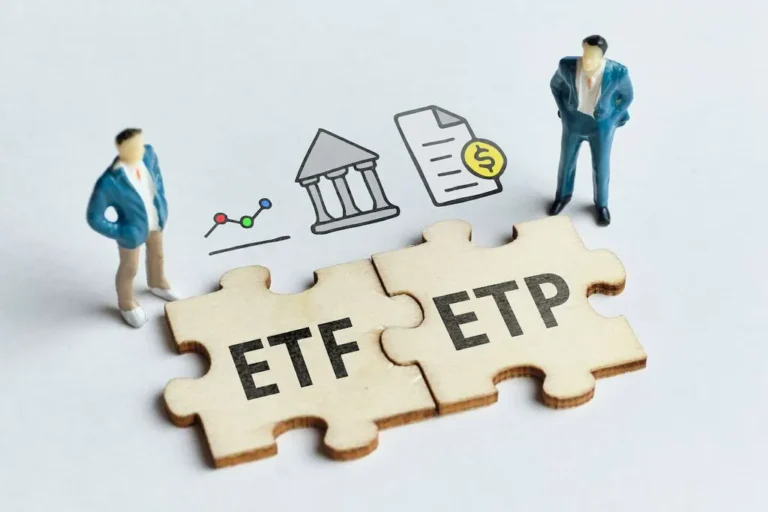Dark Pool Trading How Do These Ambiguous Markets Work?
Content
Some even believe that the pools give large investors an unfair advantage over smaller investors, who buy and sell almost exclusively on public exchanges. Institutional investors, such as mutual fund managers, pension funds, and hedge funds, use dark pool trading to buy and sell large blocks of securities without moving the larger markets until the trade is executed. While they offer benefits to institutional investors, they also raise concerns about transparency and market manipulation. As the use of dark pools continues to grow, it will be important to carefully monitor their use and ensure that they are not being used to unfairly manipulate the market. The platform, called POSIT, was designed to match buy and sell orders from institutional investors without revealing their https://www.xcritical.com/ identities or the details of their trades.

SEC ‘Looking Closely’ At ‘Dark Pools’—Here’s What They Are And Why Reddit Traders Are Rallying
Institutional investors, such as institutional funds, hedge funds, and large brokerage houses, sought a more discreet and efficient way to execute their trades without causing significant price movements in the market. The history of dark pools in the trading world starts in the 1980s, following changes at the Securities and Exchange Commission (SEC) which effectively allowed brokers to make trades in large share blocks. Later, in the mid-2000s, further SEC changes that were meant to cut trading costs and increase market competition led to an increase in dark pool trading. Investors who use dark pools need to be aware of the risks involved, including the potential for higher costs and less liquidity. They should dark pool trading also be mindful of the impact that their trades may have on the overall market. Dark pools are not regulated in the same way as public exchanges, which can make it difficult to monitor and prevent illegal activities such as insider trading.
Dark Pools and Institutional Investing—and What It Means for Retail Traders
It’s important for investors to understand the pros and cons of these practices so they can make informed decisions about their investments. However, dark pools also have drawbacks, including a lack of transparency, potential for insider Smart contract trading, and reduced price discovery. The SEC requires dark pools to register as alternative trading systems (ATSs) and comply with a range of regulations designed to protect investors and ensure market integrity.

The Pros and Cons of Dark Pools and Board Broker Systems
Retail investors are considered less successful than their institutional rivals because they have limited funds and lack access to sophisticated tools and knowledge. Investors can access dark pool trading data through various securities information processors, and can be accessed through FINRA’s website as well. Given the nature of dark pools, they attracted criticism from some due to the lack of transparency, and the exclusivity of their clientele. While the typical investor may not interact with a dark pool, knowing the ins and outs may be helpful background knowledge. There are many dark pools out there, and they can be operated by independent companies, brokers or broker groups, or stock exchanges themselves.
- The first type of dark pool is the one provided by broker-dealers, who engage in financial markets to grow their own wealth besides executing trades on behalf of their clients to earn some commissions.
- There are several different types of dark pools, including broker-dealer operated pools, independent pools, and crossing networks.
- While dark pools offer advantages in executing large trades with minimal market impact, investors must consider potential risks, ethical considerations, and the impact on overall market dynamics.
- In response to concerns about opacity and potential abuses, regulatory bodies have implemented rules such as pre-trade transparency requirements and post-trade reporting obligations.
- Dark pool orders function by matching trades internally and executing them anonymously, with the details reported only after the transaction is complete to ensure confidentiality.
Trading Strategies in Dark Pools
From a large fraction of the market, including individual investors without access to these secret trading platforms, this lack of disclosure may hide actual market activity. Critics contend that this might result in an unequal playing field when only certain players have a full perspective of market dynamics, therefore causing possible market inefficiencies and an impression of injustice. Wednesday’s comments mark the first time Gensler has addressed retail investors’ concerns over market structure, but he’s been critical of dark pools before. Increase potential system-wide risk” should one of the big players fail, Gensler said. It is crucial for institutional investors and market participants to weigh the benefits and drawbacks of utilizing dark pools. While dark pools offer advantages in executing large trades with minimal market impact, investors must consider potential risks, ethical considerations, and the impact on overall market dynamics.
It’s important to note that the advantages of dark pools primarily benefit institutional investors who trade in large volumes. Retail investors typically do not have access to these private trading venues and rely on public exchanges for their transactions. One of the key features of dark pools is the reduction in market impact for traders. When executing large orders on public exchanges, the high volume of trades can cause prices to move significantly. By conducting trades in dark pools, institutional investors can minimize this market impact, reducing the risk of price movements that could be detrimental to their trading strategy. Dark pools, as explained earlier, are private exchanges that allow investors to trade securities anonymously, away from the public market’s scrutiny.
While some argue that dark pools are a necessary tool for institutional investors, others believe that they should be more heavily regulated to prevent abuses. As the debate over dark pools continues, it’s clear that these trading platforms will remain a controversial topic in the financial world. This is because they often use high-speed trading technology that can execute trades more quickly than public exchanges. For example, if a trader needs to execute a trade quickly to take advantage of a market opportunity, they may be able to do so more easily on a dark pool than on a public exchange. Dark pools are private exchanges that allow institutional investors to trade large blocks of shares without revealing their intentions to the public.
At times, dark pool trades comprise as much as half of all trading in a single day, while at other times, they make up significantly less of U.S. equity volume. There are several different types of dark pools, including broker-dealer operated pools, independent pools, and crossing networks. Trades executed over dark pools must be reported to the public “as soon as practicable” under FINRA (Financial Industry Regulatory Authority) regulations. In practice, this means that the trades are typically reported within milliseconds to a few seconds after execution. Dark pool orders function by matching trades internally and executing them anonymously, with the details reported only after the transaction is complete to ensure confidentiality. The regulatory authority overseeing dark pools includes the Securities and Exchange Commission (SEC) and the Financial Industry Regulatory Authority (FINRA).
The company initiates the order with a floor broker for several days to make price estimations and trade valuations and find the best bidding and asking prices. Agency-broker dark pools are another common private trading system that acts as agents instead of a principal. These exchange-owned dark pools do not involve price discovery because they use the National Best Bid and Offer model to reach a price midpoint. The first type of dark pool is the one provided by broker-dealers, who engage in financial markets to grow their own wealth besides executing trades on behalf of their clients to earn some commissions.
By executing large trades anonymously, these investors can minimize price impact and avoid tipping off other market participants. For example, a pension fund looking to sell a significant block of shares may prefer to use a dark pool to prevent driving down the stock price due to increased selling pressure. Dark pools have become an increasingly popular alternative trading venue for institutional investors. While dark pools provide benefits such as anonymity and reduced market impact, they also come with drawbacks such as lack of transparency and potential for market manipulation. In this section, we will delve into the pros and cons of dark pools, and provide insights from different points of views.
Dark pools have both pros and cons that investors must consider when deciding whether to use them as an alternative trading venue. While they offer anonymity and reduced market impact, they also lack transparency and may be susceptible to market manipulation. Ultimately, the best option depends on the individual investor’s needs and preferences. While dark pools offer distinct advantages to large players, the lack of transparency that is their biggest selling point also results in a number of disadvantages. Dark pools of liquidity are private stock exchanges designed for trading large blocks of securities away from the public eye.
However, proponents of dark pools argue that they provide a way for institutional investors to trade without affecting the price of the shares they are buying or selling. This is because if the market knew that a large investor was buying or selling a particular stock, it could cause the price to move against them, resulting in a higher purchase price or lower sale price. By keeping the trade secret, the investor can avoid this problem and get a better price. Proponents of dark pools argue that they provide a valuable service by allowing large investors to execute trades without causing price disruptions. They also argue that dark pools can improve market efficiency by allowing buyers and sellers to match anonymously. The absence of a publicly accessible order book in dark pools impacts how price discovery occurs, providing a strategic advantage for institutional investors looking to minimize market impact.
Because they are private and unregulated, there is a risk of fraud or manipulation. For example, a trader could use a dark pool to manipulate the price of a stock by buying or selling large volumes of shares without disclosing their intentions to the market. If a large investor were to place a large order on a traditional exchange, the sheer size of the order could cause the price of the security to move. By using a dark pool, the investor can execute the trade without alerting the market. On a traditional exchange, buyers and sellers place orders openly, and the bids and offers are visible to all participants. In a dark pool, orders are matched anonymously, and the details of the trade are only reported after it has been executed.

